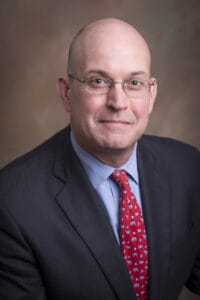 What is driving the push for multi-asset trading capabilities?
What is driving the push for multi-asset trading capabilities?
There are a number of macro trends driving multi-asset trading. Markets are increasingly interlinked and signals in one asset class often have implications across assets. It is mission critical that trading has line of sight on these correlations and how they change over time. It is harder to do this with siloed trading teams.
Our institutional clients continue to seek solutions over individual products. This trend also requires portfolios with broader access across different instruments, especially with derivatives.
Finally, liquidity is becoming more constrained. Whilst volumes can appear elevated, what is important is the size that can be executed on at a point in time. The top of the order book across asset classes is shrinking and the depth of the market is becoming shallower. This directly impacts the cost of trading. When implementing an investment thesis, there may not be sufficient liquidity to implement directly at the right cost in the instrument of choice. This may require thinking about implementation more creatively and looking across asset classes and derivatives for the most efficient expression of an idea. We have formed multi-discipline teams not only to highlight opportunities, but also to identify risks and build tools to optimise outcomes.
What are the benefits of operating an agile multi-asset business?
I like how you framed the question as “agile multi-asset”. Agility is important to ensure ideas and opportunities are flowing correctly across the platform, enabling our investment team to capture alpha for clients. With “agile athletes”, we can redeploy resources to supplement talent in asset classes that are in focus. Some skills and experiences are transferable; however, it is important to understand the nuances and risks of each instrument. This means that leveraging the subject matter expertise of the core team is essential. Another benefit comes from the insight that different perspectives can bring. These ideas and insight come together to help us make better decisions and provide a more informed understanding of what is driving pricing across markets.
What are the necessary capabilities required to successfully meet growing multi-asset demands?
An integrated approach which combines investment excellence, trading/market structure acumen, robust/reliable data, technology, quantitative insight, legal, interoperability, and ability to adjust to meet the needs of the opportunity. Relying on “the way we’ve always done it” will, over time, lead to suboptimal outcomes, missed opportunities, and leave alpha on the table.
Leaning into the relationships we have built with our sell-side partners, as well as current and emerging liquidity platforms, is essential. We need to share our collective pain points and work to develop solutions which reduce friction and increase access to liquidity.
A change mindset is a prerequisite. I firmly believe that ideas can come from anywhere on our team. Innovation is a team sport. Continuous improvement means we always need to be looking for new ways to operate more efficiently. Stealing from one of my favorite poets – “Changes aren’t permanent, but change is”.
What sort of challenges come with building the desk of the future?
Building the desk of the future means not being afraid to break traditions, and it is essential to supplement seasoned talent with new skillsets. However, introducing change while keeping the culture that has been critical to our success presents an interesting challenge.
When we think about that it highlights how important attracting the right talent is. We have had success bringing in new traders with different backgrounds. Evan Canwell on our London desk has a master’s degree in physics and Kelsie Palumbo on our Baltimore fixed income desk has degrees in computer science and mathematics. With a fresh perspective, these individuals – among many others – are driving innovation and leading new initiatives for our desks.
What do you think will be the biggest themes in trading and execution for 2023?
Data, data, liquidity, regulatory changes, interoperability and more data.